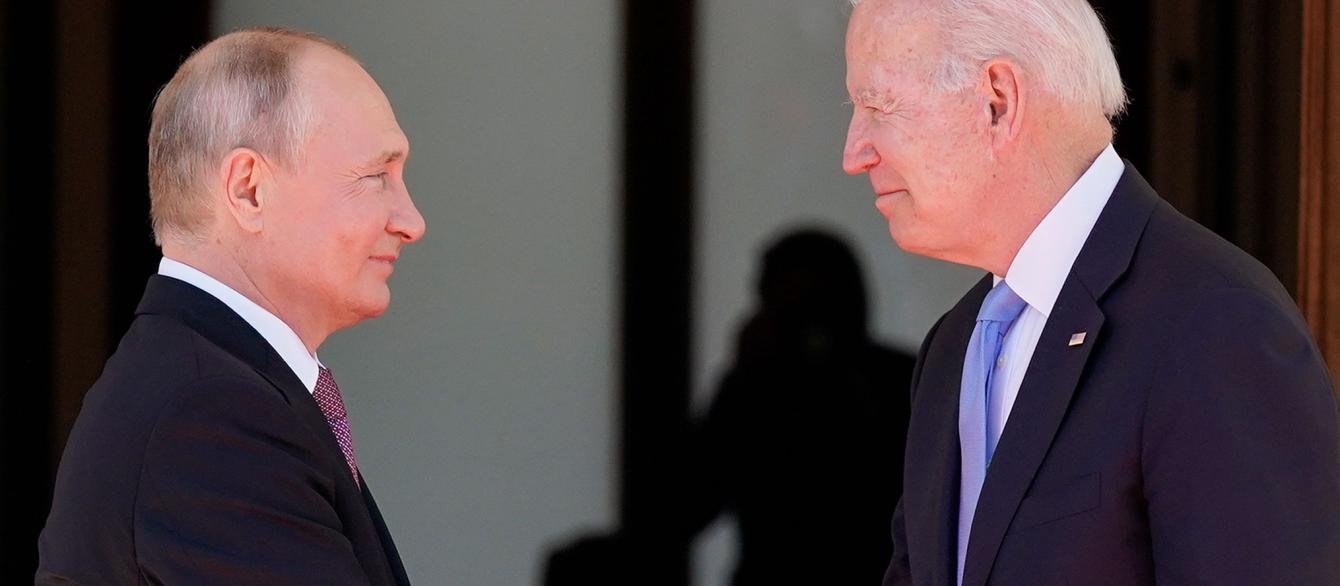The Geneva meeting between Presidents Biden and Putin met all expectations and didn’t go off the rails. After the disastrous Trump-Putin summit in 2018, American administration officials were keen to avoid unscripted moments that might give Putin the opportunity to throw Biden off guard or assert himself. More substantively, the United States wanted to reopen channels of communications from the top down, and lay the ground for productive negotiations in areas of mutual interest. On his end, President Putin was eager to reclaim the world stage, if only for a day, to remind Russian and international audiences that he is as important as the U.S. president.
Summits always play to three audiences. One is in the room—the other president and his top aides. The second is in the United States, and the third is in Russia. Each leader wants their domestic constituencies to admire their skillful statesmanship. This summit was successful on all three levels.
By all accounts, Putin and Biden had a cordial meeting. Direct threats were not exchanged, nor were florid compliments. The conversation covered “red lines” on both sides, as well as the delineation of areas for further discussion and potential cooperation. Biden presented a list of “untouchable” critical infrastructure targets that Russian state- and non-state cyberhackers had best avoid, lest they trigger a counterattack. Putin—who has for several years (disingenuously or not) argued that there should be international agreement on cybersecurity—can presumably agree with this idea. Both sides agreed to reactivate arms control negotiations, which are sorely needed and provide good opportunity for productive dialog among establishment professionals. Ambassadors will return to their posts in Moscow and Washington, D.C., having spent the past few months personifying the lack of effective communication between the capitals. We can only hope that the visa regime on both sides will also improve.
Amidst deteriorating economic conditions, a simmering COVID epidemic, and growing disenchantment with 20 years of enforced political continuity, Putin can still claim that his regime has reasserted Russia’s great power status.
To satisfy domestic audiences, Biden raised concerns about Alexei Navalny’s imprisonment and Russia’s recent crackdown on his Anti-Corruption Foundation and protest in general. Putin will have expected this, though it irritates him, and as usual he responded by claiming that the United States also limits political opposition—to wit, by arresting January 6 insurrectionists. This line was also expected. But Biden had to emerge from the meeting saying that he had forcefully raised American displeasure, not only because it is one of the foundations of his Russia policy, but also because the failure to do so would have triggered an outcry from Democrats and Republicans who would paint the president as “soft on Russia.” In a delicious bit of irony, Mike Pompeo and some Republican senators still managed to squeak loudly that Biden wasn’t firm enough against Putin.
Putin will also have emerged feeling that he accomplished his mission. Having the meeting was the mission. Despite Russia’s retaking Crimea in 2014 and helping separatists occupy eastern Ukraine for years, despite the SolarWinds hacking and other instances that have led to American and European sanctions, despite Putin’s tightening the screws on all potential sources of political competition at home, the Americans still want to meet with him. No matter that doing so seems to be largely a question of damage- and spoiler control for the United States—Russia is a country that must be taken into account. Amidst deteriorating economic conditions, a simmering COVID epidemic, and growing disenchantment with 20 years of enforced political continuity, Putin can still claim that his regime has reasserted Russia’s great power status. For a while, after Crimea, that was enough of a social contract to boost his popularity. Whether it will be enough now, as a growing number of younger voters become more resentful of the cronyism exposed by Navalny, remains to be seen. But in the meantime, and in the run up to the September Duma elections, Putin is taking no chances.
Where does that leave the bilateral relationship? Better off than it was last week. As Biden pointed out, and those of us who have spent zillions of hours on Zoom can attest, it’s always better to meet in person. You don’t have to like someone to have a productive meeting. And you don’t have to trust the other side to negotiate agreements that make both countries better off. Reopening channels of communication is in and of itself an important and positive outcome of this summit.






